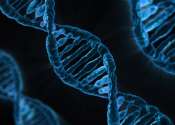Forming genitals in boys requires complex dance between genes and hormones
The most common congenital disorders of all, especially in baby boys, are differences in a newborn's sexual anatomy that is not standard female or male. In boys, they include undescended testicles, misplaced urethras, and ...
Jun 26, 2020
2
92









